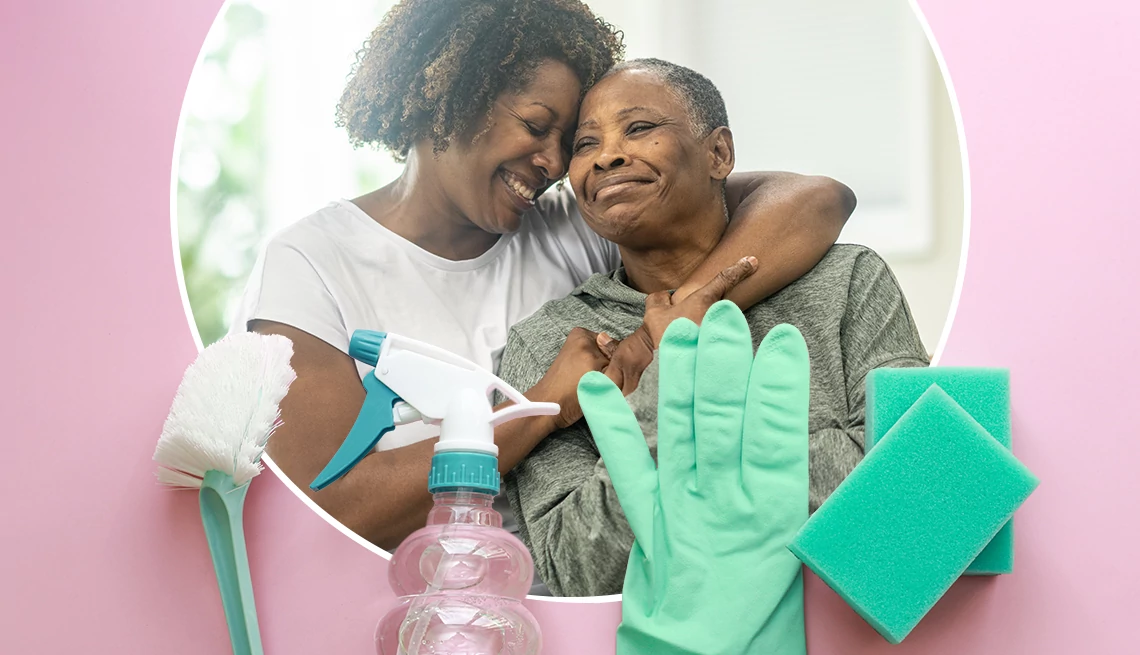AARP Hearing Center


Keeping a house clean can be an overwhelming responsibility, especially if you have an illness, mobility issues, a new injury or disability. Professional house cleaners will clean and sanitize the kitchen and appliances, scrub sinks, showers, bathtubs and toilets, wipe down countertops and mirrors, mop the floors, dust and vacuum and take out the trash.
But if you’re used to always cleaning your own home it may be an adjustment to reach out and hire help. “The older the client, the higher the level of shame that they may feel for not being able to keep up with their own [home]. I think it is generational,” says Chris Willatt, founder of Alpine Maids.
Whether you’re contracting cleaners because you are no longer able to manage it or are calling for an aging parent or a relative who needs to outsource the work, hiring professional cleaners can make your life easier. We spoke with two professional house cleaning experts on what someone can expect from the service and what the workers won’t clean.
Services for older adults
Although there isn’t a professional cleaning service specifically designed for older adults, cleaning companies are conscientious about their clients. When cleaners go to an older person’s home or someone with limited mobility, they may modify how quickly they clean a home. “Sometimes [a client] may feel a little anxious when we're working too fast and kind of feel like things are out of control,” says Michael Silva-Nash, vice president of operations for nationwide Molly Maid. “We want to make sure we react to the speed of the customer as well.”
Professional cleaners consider areas in the home that may be more difficult for clients with mobility issues to access. “We try to spend a lot of attention on the areas that are harder to reach that they’re going to see every day ... whether it’s a bottom shelf or top of the fridge,” says Silva-Nash.
They will minimize tripping hazards, such as moving their cleaning products out of the way to stave off potential accidents. They’ll also make sure before they leave that mopped floors are completely dry. “We want to make sure we’re not leaving the home with the possibility of a slip or fall,” he says.
Developing a game plan
Scheduling a meeting in advance of a first big clean allows the client to explain their needs and concerns and allows the company to create a plan of action. Silva-Nash explains that the first visit for a recurring service lets them view the entire space and offer a free estimate. He says sometimes a client may not use all the rooms in the house and don’t need them cleaned as often as others.
“We customize the cleaning plan just for their needs,” says Silva-Nash. “We know that most of the time they’re working with a very specific budget during this season of life, so home consultation is critical [to] maximize the value for them.”































.jpg?crop=true&anchor=13,195&q=80&color=ffffffff&u=lywnjt&w=2008&h=1154)
































More From AARP
Caregiving Items that Make Mealtime Easier
Adaptive dinnerware, utensils and tools that reduce stress and boost independence10 Common Mistakes That Family Caregivers Make
Experts share how to avoid these caregiving pitfallsQuiz: What’s Your Spring Cleaning IQ?
How often should you wash your pillows? And when should you clean your windows? Take the quiz to find out!
Recommended for You